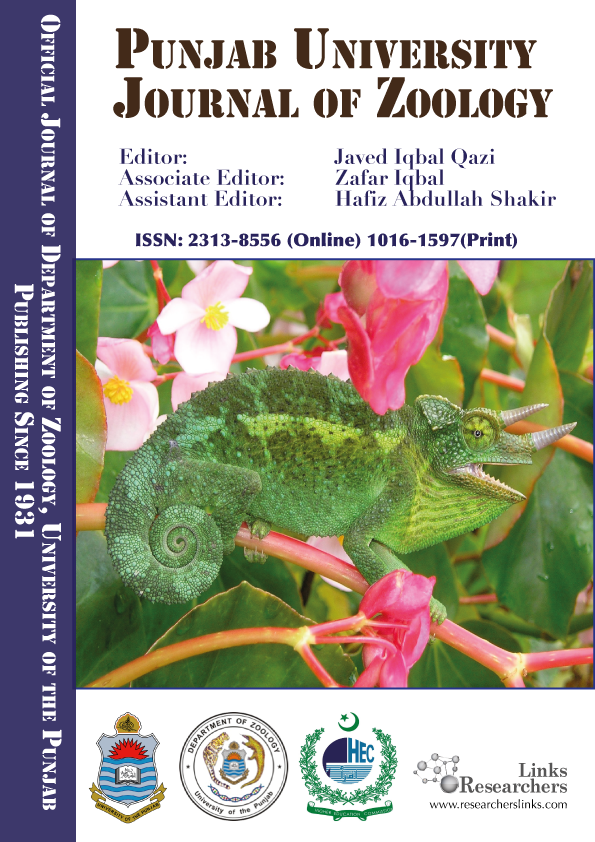ABSTRACT
Abstract | Earthworms are called soil engineers as they increase the soil fertility. The study was aimed to see the aggregation potential of microbial communities which are associated with earthworms (Lumbricus terrestris) towards adherence and exopolysaccharides productions. Both productions are important parameters of plant growth promoting bacteria. Earthworms, along with soil sample, were collected from different areas of Lahore. Bacteria were isolated, purified and further characterized morphologically, biochemically and at molecular level. Bacteria after isolation were labelled as EPF1 while by molecular confirmation this bacterial strain was named as Exigoubacterium auranticum. Optimum bacterial growth response was recorded at pH 7.0, temperature 37oC, LB media and shaking 160 rpm conditions. Cell surface characteristics of E. auranticum (EPF1) was determined in terms of bacterial cell surface hydrophobicity and auto-aggregation assay. Highest percentage hydrophobicity values of the strain EPF1 were recorded with toluene (84 %) as compared to other organic solvents such as chloroform (58 %) and xylene (63%). Auto-aggregation response of E. auranticum EPF1 was highest at fifth hour of culture incubation. Qualitative analysis of exopolysaccharides (EPS) in congo red supplemented Brain Heart Infusion (BHI) agar medium showed positive results and EPS contents showed higher carbohydrate content as compared to Protein contents. It was found that the microbes associated with earthworm (L. terrestris) have significant potential of adherence and can be exploited as a bioinoculant formulation for improving soil fertility.
Novelty Statement | The study is novel in its design as it is planned to see the aggregation potential of microbial communities which are associated with earthworms (Lumbricus terrestris) for the adherence and exopolysaccharides productions. Both characteristics are important for promoting the growth of plants and soil fertility traits.
To share on other social networks, click on any
share button. What are these?







